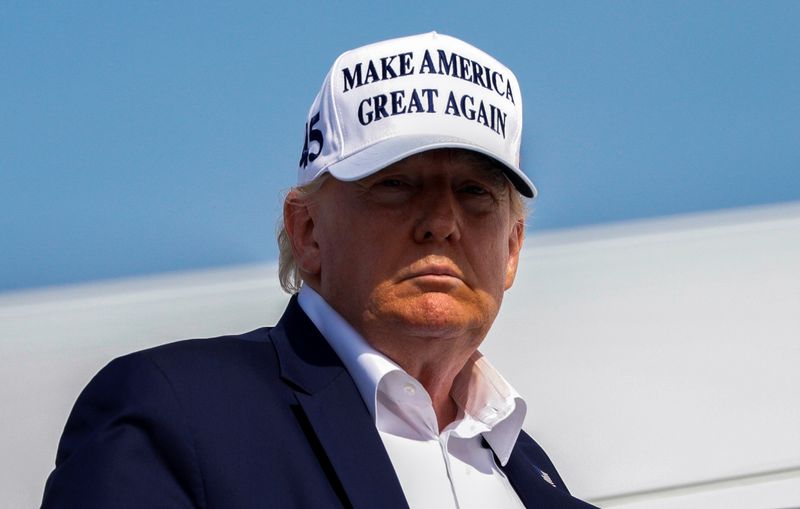(Bloomberg) --
President Donald Trump said he’ll punish American companies that move jobs abroad and reward firms with tax breaks for shifting work from China to the U.S., proposals aimed at hastening the decoupling of the world’s largest economies.
“We will create tax credits for companies that bring jobs from China back to America, and we’ll impose tariffs on companies that leave America to produce jobs overseas,” he said in a speech Monday in Minnesota.
With 11 weeks to go before his re-election bid, and with the unemployment rate at 10.2%, Trump is doubling-down on a message imploring domestic corporations to produce goods and services at home rather than in places like China where it’s less expensive.
“In Michigan, we have auto plants opening up left and right, and expanding,” Trump said. “They haven’t seen that in 42 years. We will end our reliance on China. We will make our critical drugs and supplies right here in the United States.”
Trump’s economic offensive against China has so far involved tariffs on its imports and restrictions on Chinese companies including Huawei Technologies Co. The pandemic, which Trump calls a “plague” wrought by China, has given fresh momentum to some Trump administration officials and members of Congress, who want to bring sprawling supply chains back to the U.S.
India, Taiwan and Japan have also offered fiscal incentives to entice companies to shift production out of China, or at least increase investment at home.
Related Stories
- China’s Loss May Be India’s Gain in Shifting Supply Chains
- Japan’s Push to Cut China Reliance Boosts Southeast Asia
- Why the U.S. Can’t Easily Break China’s Grip on Supply Chains
It was three years ago today that the U.S. Trade Representative’s office formally launched an investigation into China’s treatment of American intellectual property. That probe’s findings served as the basis for a U.S.-China trade war involving tariffs on some $500 billion in products shipped between the two nations.
Bank of America estimated in a recent report that it would cost $1 trillion over five years to shift all foreign manufacturing not aimed at domestic consumption out of China. The bank called that a “significant, but not prohibitive” amount of investment.
©2020 Bloomberg L.P.
